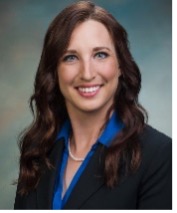

This meeting recap was generously provided by: Jenna Preusker, PharmD, BCPS – Nebraska ASAP Pharmacy Coordinator
Part 2: Afternoon Sessions:
Starting off the afternoon, Dr. Krishna Rao, a Nebraska native, returned virtually to his home state from the University of Michigan to share updates related to the gut microbiome and non-traditional therapies for the treatment of Clostridioides difficile infections, reminding us that some recurrent and difficult-to-treat infections may require us to think outside of traditional antibiotic therapy. Some key take home points included:
- We are at an inflection point in the management of C. diff infections, from changing diagnostic methods to treatments that include monoclonal antibodies, live biotherapeutics, and fecal transplants.
- Treatment focus is now not just initial cure but preventing recurrence. Newer directions in research that are focused on mechanisms of action show promise.
- FMT is one of several modalities used now in treating initial or recurrent CDI, but questions around efficacy and regulation remain.
- So, what about probiotics? Dr. Rao shared that probiotics are generally safe and well-tolerated, but regulation as supplements and safety concerns impede deployment. Probiotic clinical data has a lot of heterogeneity, low-quality of data, and safety concerns have precluded widespread deployment and recommendation by guidelines.
The final speakers in the general session joined us to share their practical experiences in diagnostic stewardship from right here in Nebraska. Dr. Renuga Vivekanandan and two of her infection preventionist colleagues, Becky Cook and Angel Pleuger shared their strategy at CHI for engaging frontline nursing and infection preventionist staff in diagnostic stewardship.
- Diagnostic Stewardship can reduce unnecessary lab orders, unnecessary antibiotic use, create a collaborative culture, and increase patient safety and outcomes.
- A multidisciplinary approach proved to be effective. Results were shared regionally to determine best practices and discuss lessons learned.
- Nursing driving initiatives for C. diff testing, CAUTI, and CLABSI prevention using standardized checklists resulted in improvement in CAUTI, CLABSI and C. diff rates at CHI.
During the afternoon, attendees had the option to attend sessions in breakout tracks, one with a focus on long-term care and one with an acute care and ambulatory focus.
In the long-term care track, Dr. Kara Jacobs-Slifka from the CDC led off the afternoon with a discussion of enhanced barrier precautions. Dr. Jacobs-Slifka provided a wealth of resources for facilities to refer to and recommended that when implementing enhanced barrier precautions, facilities should have a detailed implementation plan and expect surprises. She also noted that buy-in is critical and communication is key.
Dr. Robin Jump followed with a presentation on recognizing and treating infections in LTC residents. She described non-localizing signs and symptoms that may indicate infection in long-term care residents, ways to differentiate signs of acute cystitis from other reasons for those symptoms and the introduction of antibiotic use protocols for infections common to older adults.
To wrap up the day in the long-term care track, Nebraska Infection Control Assessment and Promotion Program’s (ICAP) own infection prevention supervisor, Kate Tyner, gave a practical presentation on the intersectionality of antibiotic stewardship and infection preventions, sharing several lessons learned through actual patient cases. Her take home message was to make it easy to do the right thing, through use of intake procedures, infection control and stewardship plans, IP notifications, and alerts to frontline staff.
In the acute care track, we were joined by Dr. Christopher Evans, a pharmacist from the Tennessee Department of Health. He addressed the new CMS requirements for hospitals to begin participating in the Antibiotic Use and Resistance module within NHSN while sharing Tennessee’s progress and lessons learned over the last few years of their statewide initiative through use of a legislative mandate. His presentation recording will be a great resource to Nebraska hospitals beginning the AUR reporting process.

The second session featured UNMC Instructor, Dr. Jonathan Ryder, with an update on antifungal therapies. He discussed current and future opportunities for antifungal stewardship as well as novel antifungal agents and their potential niches in clinical use.
To wrap up the day in the acute care track, a pharmacist panel highlighted strategies for expanding the antimicrobial stewardship pharmacist workforce in the state of Nebraska. This dialogue featured Dr. Jenna Preusker from Nebraska ASAP, Dr. Scott Bergman from Nebraska Medicine, Dr. Danny Schroeder from Nebraska Medicine Bellevue, and Dr. Anthony Rodewald from Community Hospital in McCook.
Overall, the 2023 Nebraska Antimicrobial Stewardship Summit was a great success. We thank all of the attendees, the planning committee, and hosting organizations for a great day of furthering Nebraska’s antibiotic stewardship education to save antibiotics so antibiotics can save lives. For those not able to attend, recordings of the presentations are being made available by Nebraska ASAP/ICAP for anyone to listen and learn.
We look forward to seeing everyone again next year at the 2024 Nebraska Antimicrobial Stewardship Summit to be held on Friday, May 31, 2024. Mark your calendars now!!
Check out our first post if you missed it to learn more about the morning Summit sessions!
2023 session recordings are now available on the Nebraska ASAP YouTube channel: Nebraska ASAP – YouTube
